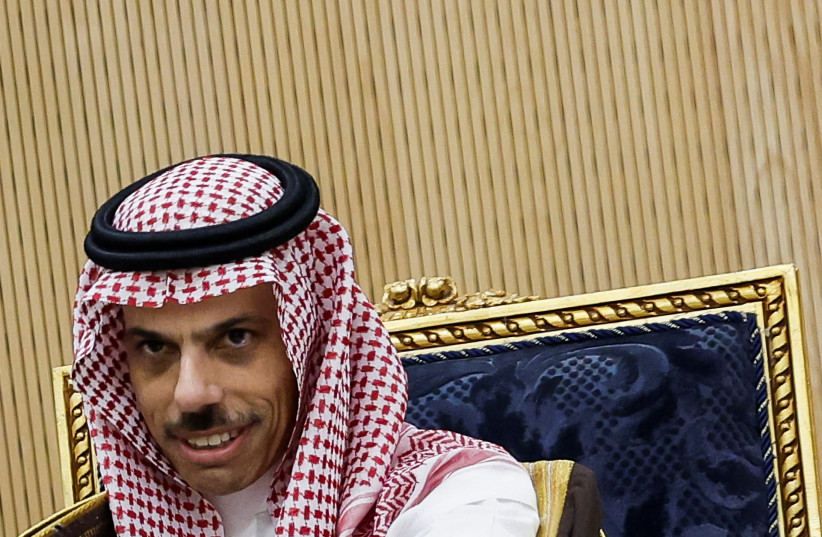A meeting between US Secretary of State Anthony Blinken and a group of senior Arab officials about a month ago devolved into an unusual shouting match between the foreign minister of the United Arab Emirates and a senior adviser to the Palestinian president, according to five sources familiar with the details of the incident.
The sharp confrontation reflects the skepticism regarding the planned reforms of the Palestinian Authority, and the internal disputes between the leaders of the Arab world. Both of these could undermine the Biden administration's efforts to formulate a strategy for the day after the war in Gaza.
The meeting took place on April 29 in Riyadh, on the sidelines of the World Economic Forum meeting. The purpose of the meeting was to discuss a common strategy for the day after the war in Gaza.
In addition to Blinken, the meeting was attended by the foreign ministers of Saudi Arabia, Egypt, Jordan, Qatar, Kuwait and the United Arab Emirates, as well as Palestinian Minister Hussein al-Sheikh, who is the closest adviser to Palestinian President Mahmoud Abbas.
According to the sources, during the meeting Al-Sheikh said that the Palestinian Authority was carrying out reforms and forming a new government as the US and Arab countries requested, but it was not receiving enough political and economic support.

Towards the end of the meeting, the UAE's foreign minister, Sheikh Abdullah bin Zayed, responded by saying that he had not seen any significant reform in the Palestinian Authority, the sources said.
At the meeting, the Emirati foreign minister called the Palestinian leadership "Ali Baba and the Forty Bandits" and claimed that senior officials in the Palestinian Authority are "useless" and therefore "replacing them with each other will only lead to the same result."
"Why should the United Arab Emirates give financial aid to the Palestinian Authority without real reforms?" he asked.
Al-Sheikh shouted back at the Emirati foreign minister and said no one would dictate to the Palestinian Authority how to conduct its reforms, the sources said.
According to the sources, Saudi Foreign Minister Faisal bin Farhan tried to calm the heated exchange and said that reforms take time.
But the meeting was already out of control. Both sides shouted at each other to the point where the Emirati minister got up and left the room in anger.
Jordanian Foreign Minister Ayman Safadi left the meeting and returned a few minutes later with the UAE foreign minister, who apologized to Blinken for having to witness the infighting.
A senior UAE official confirmed that the Emirati Foreign Minister expressed himself in this way at the meeting and said: "His Excellency added that if the Palestinian Authority gives its residents similar attention as it gives to security coordination with Israel, the Palestinians will be in a much better situation."
Al-Sheikh and the US State Department declined to comment.
Political and personal differences
The tension between the United Arab Emirates and the Palestinian Authority stems from both personal and political differences. For years there has been a rift between the President of the Emirates Mohamed bin Zayed and Palestinian President Mahmoud Abbas.
One of bin Zayed's closest advisers is Mohammed Dahlan, Abbas's main political rival, which increased Abbas's suspicion of the UAE. In the United Arab Emirates, on the other hand, Abbas and the Palestinian leadership were accused of corruption for years. The Palestinian leadership accused the UAE of betraying them after the Emirates normalized relations with Israel in 2020.
Before the appointment of the new Palestinian Prime Minister Mohammad Mustafa, the United Arab Emirates acted against him and emphasized to the Biden administration that he is one of Abbas' associates.
The Emirates pushed to appoint in his place former Palestinian Prime Minister Salam Fayyad - who is known to be a critic of Abbas.
